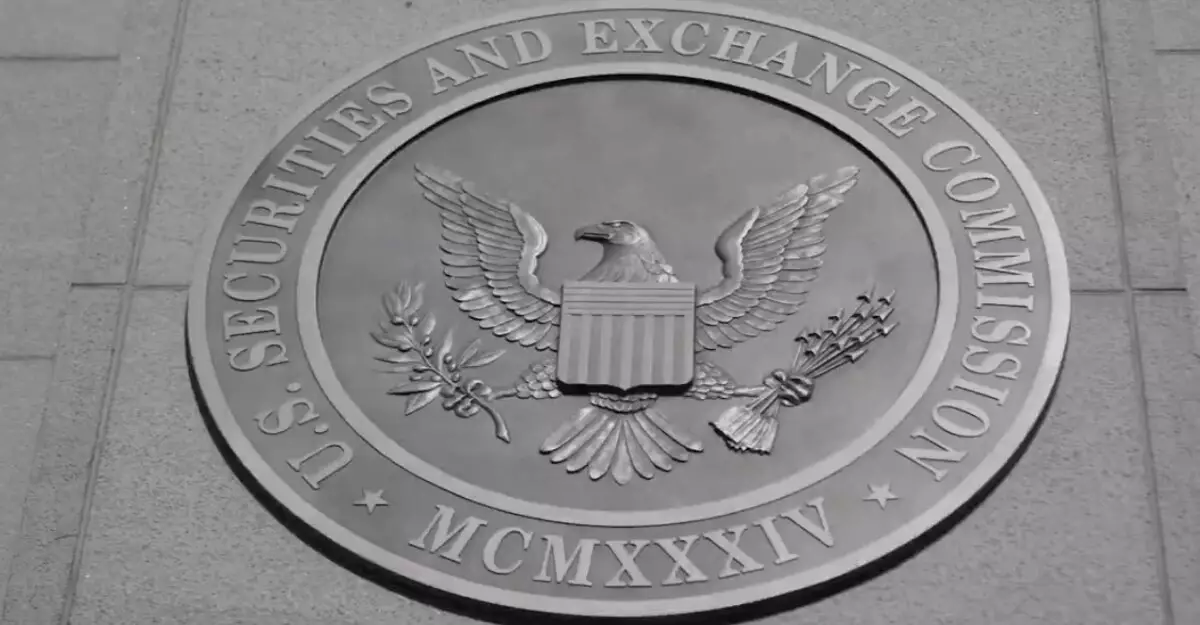In an age where technology reigns supreme, the intersection of digital currency and regulation is a contentious battlefield. The U.S. Securities and Exchange Commission (SEC) is grappling with the formidable task of crafting crypto regulations, guided by signals from President Donald Trump. This endeavor seems less like a proactive measure to protect the nation’s financial fabric, and more like a haphazard rush to establish control over an ever-evolving landscape. The second roundtable meeting, slated for April 11, titled “Between a Block and a Hard Place: Tailoring Regulation for Crypto Trading,” underscores this urgency. Yet, one has to ask: Is this a genuine effort to foster a secure environment, or merely a reactionary approach to appease an industry that is fundamentally disruptive?
Key Players or Just Token Voices?
What emerges from the list of panelists—executives from prominent firms like Coinbase and Uniswap Labs—appears to be a cavalcade of industry heavyweights. However, one must scrutinize the intent behind their involvement. Are these figures genuinely seeking to construct a robust regulatory framework, or are they merely advocates for corporate interests? The SEC’s Crypto Task Force has gathered a diverse group, from the Healthy Markets Association to FalconX. Yet, the presence of corporate titans raises concerns about whether the voices of smaller players and everyday users will be drowned out amidst this elite discourse. The optics of regulation developed in the echo chambers of corporate boardrooms do little to inspire confidence in a fair and equitable regulatory environment for all stakeholders.
The Public Participation Mirage
While the SEC touts public participation as a cornerstone of its regulatory approach—encouraging attendees to submit recommendations—this ostensibly inclusive gesture feels more like a facade. It’s a box-ticking exercise that fails to engage meaningfully with the broader public. The notion that feedback received through fleeting discussions will shape the framework of the burgeoning crypto landscape is inherently flawed. The reality is that the complexities of digital finance warrant more than just a series of roundtables with potentially pre-scripted outcomes. Genuine dialogue requires sustained engagement with voices that represent the interests of individuals, not just institutions.
Time Constraints and Missing Opportunities
Time is of the essence in this process, as President Trump has set a strict deadline for finalizing crypto rules by August. The four-month timeframe may lead to a hurried final product, one that lacks the nuance required for effective governance in such a fluid area. Rushed regulations are not only dangerous but could also stifle innovation and drive developers away from the U.S. Indeed, the cryptocurrency sector thrives on dynamism and adaptability—qualities that stand in stark contrast to the plodding pace of governmental processes. Taking the time to consider broader implications and drafting comprehensive regulations could set the stage for a sustainable, innovative financial ecosystem.
A Cautious Roadmap Forward
The fundamental question remains: can the U.S. foster a truly progressive regulatory framework under current leadership? The executive order signed last month aims to establish a strategic reserve of cryptocurrencies and appears to signal some level of commitment to the sector. However, the juxtaposition of lofty ambitions against inadequate procedures raises unease. Caution is warranted; a well-intentioned but miscalibrated approach could lead to features that protect corporate giants at the expense of the community and consumers. Ultimately, regulation shouldn’t stifle the creative spirit that defines the cryptocurrency industry; instead, it should enhance accountability and transparency, ensuring that innovation can flourish within a safe environment.
In navigating this complex and uncertain terrain, the stakeholders involved—from regulators to the crypto community—must prioritize collaboration and inclusivity. The stakes are high, and the potential consequences of mismanagement could reverberate through the economy for years to come. What remains to be seen is whether the SEC will transcend its role as an enforcer of antiquated paradigms in finance and instead emerge as a beacon of progressive regulation that paves the way for a vibrant digital future.



Leave a Reply